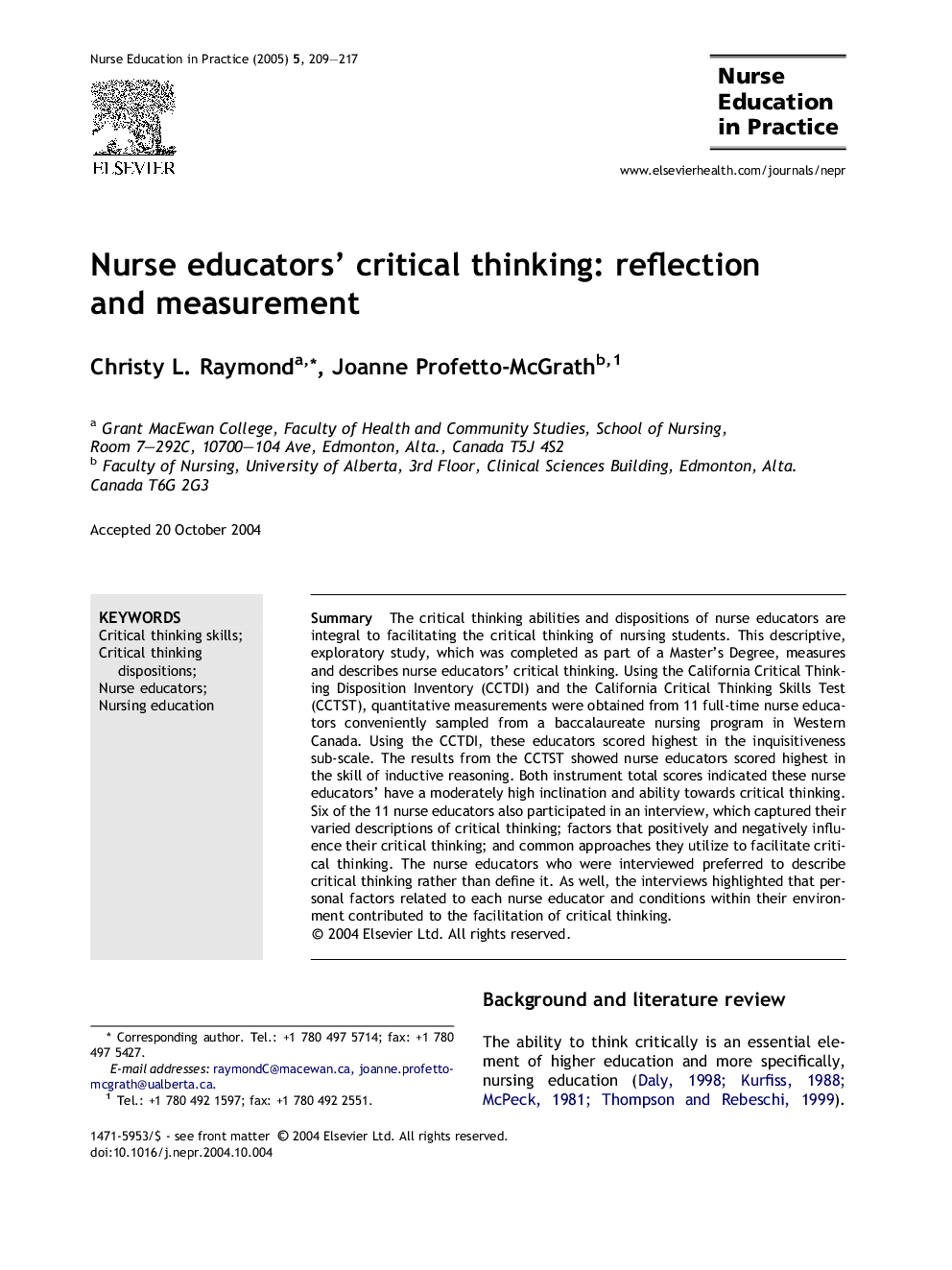| Article ID | Journal | Published Year | Pages | File Type |
|---|---|---|---|---|
| 10316233 | Nurse Education in Practice | 2005 | 9 Pages |
Abstract
The critical thinking abilities and dispositions of nurse educators are integral to facilitating the critical thinking of nursing students. This descriptive, exploratory study, which was completed as part of a Master's Degree, measures and describes nurse educators' critical thinking. Using the California Critical Thinking Disposition Inventory (CCTDI) and the California Critical Thinking Skills Test (CCTST), quantitative measurements were obtained from 11 full-time nurse educators conveniently sampled from a baccalaureate nursing program in Western Canada. Using the CCTDI, these educators scored highest in the inquisitiveness sub-scale. The results from the CCTST showed nurse educators scored highest in the skill of inductive reasoning. Both instrument total scores indicated these nurse educators' have a moderately high inclination and ability towards critical thinking. Six of the 11 nurse educators also participated in an interview, which captured their varied descriptions of critical thinking; factors that positively and negatively influence their critical thinking; and common approaches they utilize to facilitate critical thinking. The nurse educators who were interviewed preferred to describe critical thinking rather than define it. As well, the interviews highlighted that personal factors related to each nurse educator and conditions within their environment contributed to the facilitation of critical thinking.
Related Topics
Health Sciences
Nursing and Health Professions
Nursing
Authors
Christy L. Raymond, Joanne Profetto-McGrath,
